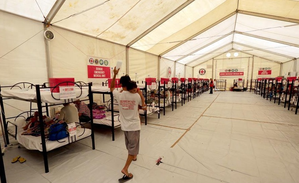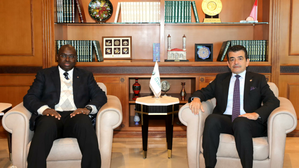Dengue outbreak declared in Philippine capital’s most populous city

Manila, Feb 15 (IANS) The Mayor of Quezon City, the most populous city in the capital region of the Philippines, declared a dengue outbreak on Saturday, citing a nearly 200 per cent surge in cases.
From January 1 to February 14, the city’s health department recorded 1,769 dengue cases, nearly 200 per cent higher than last year, said Quezon City Mayor Joy Belmonte.
Belmonte said 10, including eight minors, have died from the disease.
“Our declaration of a dengue outbreak ensures that we are on top of the situation, and we are doing everything we can to protect our residents from this deadly disease, especially our children,” Belmonte said.
Fifty-eight per cent of the reported cases involve school-aged children aged five to 17, while 44 per cent are children aged one to 10.
As a primary solution to address the late diagnosis of dengue, all 66 city health centres will be open during the weekends from 8 a.m. to 5 p.m. to accommodate possible dengue patients, Belmonte said.
The city’s outbreak declaration came one day after the Philippines’ Department of Health noted increased water and food-borne diseases, influenza-like illnesses, leptospirosis, and dengue.
According to government data, Quezon City has a population of nearly 3 million as of 2020, Xinhua news agency reported.
Dengue virus is the most important arbovirus among humans. With around half the world population at risk and recent estimates of about 60–100 million symptomatic infections per year.
Dengue is a major public health problem in the Philippines and is endemic in all regions of the country. The country’s outbreaks are largely seasonal, with most episodes occurring during the wet season (June–February).
Recent data from 2023 emphasise escalated dengue outbreaks in several countries, particularly Bangladesh, Brazil, Burkina Faso, Fiji, Pakistan, the Philippines, and Viet Nam. Additionally, non-endemic countries are increasingly facing dengue as a significant public health concern.
Dengue prevention and outbreak response involves several agencies in the public health sector. Addressing these challenges requires a multidisciplinary and multisectoral integrated approach, especially at national level to achieve its goal of reducing the impact on public health. The strain on epidemic response capacity due to simultaneous concurrent outbreaks coupled with political crises highlights the need for robust emergency response mechanisms and strengthened collaboration among stakeholders.
The global lack of resources, including shortages of good quality dengue diagnostic kits for early detection, lack of trained clinical and vector control personnel, and community awareness remain a critical obstacle to an effective response.
–IANS
int/jk/as




